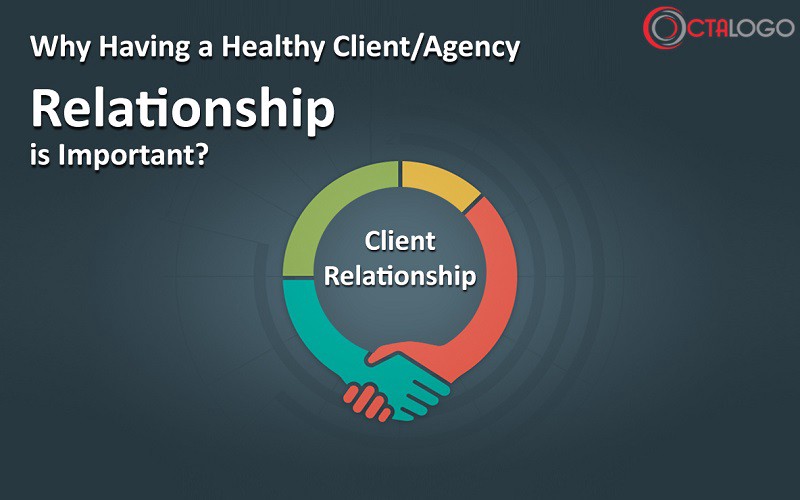By Felicia Nwosu
In recent years, the agency-client relationship has morphed, and things are not as simple as they used to be, especially with an exponential increase in competition which has worsened the matter. Just like the millennial generation has a reputation for job-hopping and lacking loyalty, so do brands, as many of them now bring marketing expertise in-house to avoid unnecessary hassles associated with agencies.
Successful business partnerships are built on trust, confidence, understanding, and mutual success. These relationships require a pro-active effort to sustain and are critical to future growth. From the point of view of the agency, client turnover affects their image and bottomline. Clients are also affected as agency switching over to other agencies. The agency, on the other hand, is expected to take some time in understanding the inherent qualities of its product, level of competition, its competitor’s strategy and nature of its customers to assist it in deciding the kind of campaign to run.
The marketing landscape itself has been buffeted by unprecedented upheavals this year, so the ability to see beyond the immediate noise to understand how agencies and brands can survive and thrive together over the next decade should be the focal points for both clients and agencies.
Expectedly, an agency’s top priority should be to help clients achieve their goals. This can be easily realised where there is cordial relationship built on mutual trust, confidence and understanding between the two parties, since, the primary objective of both sides is same, which is to make a successful advertising campaign. It is such relationship that promotes collaborative and creative work from both parties, whilst remaining productive and cost-effective for the client.
Agencies are usually on the leading edge of trends and technology, which makes performance-driven agencies use analytical reports, data, and software to target the right offers, to the right customers at the right time.
Clients see agencies as a pool of specialists, and they know that an in-house department may not have the skills expertise and resources to handle all the channels they need as brands to reach their target audience.
While full-service marketing agencies, on their part, understand the importance of brands and clients, and ensure they offer comprehensive strategies and solutions custom-fit to clients from start to finish in terms of marketing, promotions, and advertising.
With all these wide range of services provided by agencies to their clients, some clients are still in search for a more consumer-centric approach and treatment from their agencies. A report published recently by Setup’s 2020 Marketing Relationship Study, says that nearly one-third of U.S. brands are said to be contemplating switching their ad agency in the next six months, while more than nine in 10 say foundational to any strong agency-client deal is mutual chemistry, adding that chemistry is the most important factor in forging a new agency partnership.
Meanwhile, MARKETING EDGE, Nigeria’s leading marketing & advertising publications, in its usual keenness to know how global trends affect local brands and the IMC industry undertook investigation to find out if agencies within the Nigeria IMC industry space are experiencing such changes within their domain.
Below are excerpts from leaders in the Nigeria IMC industry.
Speaking on behalf of his agency and his sector of the IMC industry, President of Experiential Marketing Association of Nigeria (EXMAN), Tade Adekunle, explained that he is not aware of such shifts. In his words: “I only know of the companies I am working with and they are not changing; I cannot speak for other agencies, I have not seen movement in Nigeria.”
Mr. Adekunle, while also reacting to some of the reasons alluded to in the report, especially huge budget charged by agencies, reminded agencies that some of the brands are still struggling, and at the same time would still want to meet targets. “We should look at it from the experiential point of view – survival for brands, survival for consumers who are also impacted in one way or the other because of cash, and survival for agencies.”
He went further to advise experiential agencies to employ a more concerted effort, by being transparent, building trust, adding value, and also being relevant to clients’ brands as well as paying attention to details while dealing with clients. “In this era of recession, there is no room for unnecessary spending from the client’s perspective and therefore agencies too should not be frivolous with funds,” he said.
Managing Director and Chief Executive Officer of Towncriers Ltd., Kayode Olagesin said that though he may not be able to speak in specifics as he was not aware of clients that have switched, he, however pointed out: “This is something that happens within the industry; but whether a particular percentage will do so is something I can’t answer, and I have not seen anything that will suggest that so far.” He went further to say: “Though I have not seen any evidence on that, but what is happening now is that most clients are also not doing much. When you are not doing much, what is the rationale that you are changing agency? So, everybody is basically on semi-pause mood.”
On the importance of mutual chemistry in forging a new agency partnership, the Towncrier Boss agreed that truly, for most companies, the objective of hiring a full-service marketing agency is to build relationships, increase brand loyalty, and make more sales. He opined that chemistry edged out other high-ranking considerations, including understanding of the industry, professionalism and general creativity. “This is a normal thing, as clients at any point in time would want to work with agencies they have chemistry with. It is not all about knowledge on the job. They want to feel that, ‘Look, we have the same view; we have the same approach to business and to marketing communication’. So the chemistry is very important in a relationship; but, I can’t associate it and say that is the reason why 30% of the industry engages their agencies.”
Meanwhile, Baba Awopetu, Group Strategy & Marketing Director (CMO) and UK Sales & Marketing Director, Optegra Eye Healthcare, cautioned agencies to be careful and mindful of their clients. He said that what clients have tolerated does not mean they are in full agreement with agencies, emphasising that what strikes clients most is trust and empathy.
He encouraged agencies to be obsessed with clients’ problems: “Agencies should connect emotionally with their clients; understand the ‘why’, discover the ‘why’, understand where there is a real ‘why’ and a superficial ‘why’. These will help in building a strong foundation based on mutual understanding, goodwill and open lines of communication, while helping agencies to remain successful by prioritising transparency to ensure it exceeds expectations and accomplishes outstanding results for its clients.”
Confirming the report’s position that about 13% of brands said they’d like to see “more value” from their agencies for less money, while 12% of agencies said what brands ask often exceeds set budgets, the Managing Director of Opportunity To See Limited, Emmanuel Ajufo, said that the adverse effect of Covid-19 has virtually affected all sectors of human endeavour, and this has introduced new trends between brands and agencies in the industry. He stated that in the new normal, “clients are looking for opportunities that will give them more at a reduced cost. He therefore advised: People in our industry will begin to think about such products that will penetrate the target audience at a reduced cost.”
In the same vein, Otis Ojeikhoa, the founder and Chief Executive Officer of Brands Optimal, stated that brands will always have needs that are very difficult to meet, and as a result, agencies will always strive to meet the clients’ needs and exceed their expectations which is the natural design of that relationship.
“These are just natural expectations of a customer, and the principle of the relationship. It is just not only in Nigeria, it is actually global in every sphere of life. So you must, in every single day of your life, work to meet every single need of your client and where possible exceed them.”
He therefore stressed that any agency that is not able to meet the chemistry requirement, the performance requirement, the negotiation ability, and drive cost-leadership with the client will lose the client. “It is not foreign; it is not only in Nigeria, it is in every relationship where another person pays somebody for service.”






Comment
No comments found.